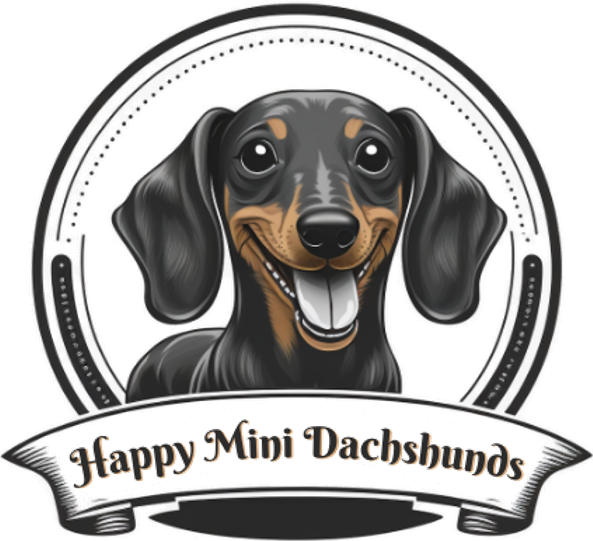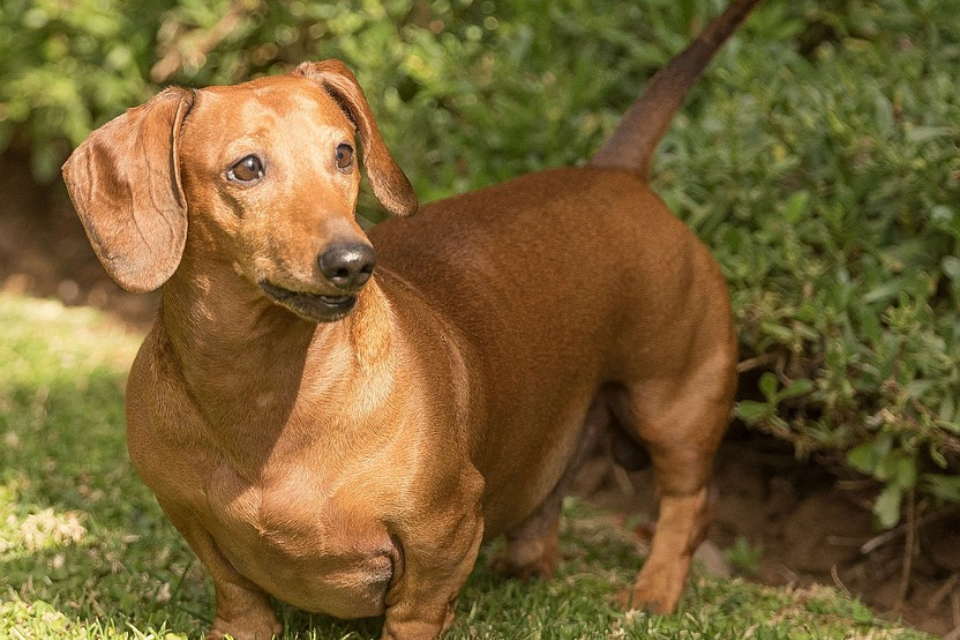As a Mini Dachshund owner, it’s important to maintain your furry friend’s weight within the healthy range to avoid potential health problems. A Mini Dachshund is prone to back issues, and carrying excess weight puts them at higher risk of developing spinal problems. So it’s crucial to keep an eye on your pet’s weight and ensure they stay in good shape.
Key Takeaways:
- Maintaining a healthy weight is crucial for mini dachshunds to prevent back problems.
- Ideal weight for adult mini dachshunds and average weights at different ages.
- Tips for feeding, providing exercise, and monitoring weight changes to keep your mini dachshund healthy.
Understanding the ideal weight for mini dachshunds
Mini dachshunds and their susceptibility to back problems
Due to their long and low body shape, Mini Dachshunds are prone to spinal issues, such as intervertebral disc disease (IVDD), which can lead to paralysis. Carrying extra weight can put unnecessary pressure on their spine, so it’s essential to keep them within the ideal weight range.
Average mini dachshund weights by age
It’s essential to monitor your dog’s weight as they grow and develop. Here is the average weight range for Mini Dachshunds at different ages:
- Birth: 7-10 ounces
- 9 weeks old: 2-2.5 pounds
- 12 weeks old: 3-4 pounds
- 6 months old: 7-8 pounds
- 12 months old: 8-10 pounds
The ideal weight for an adult Mini Dachshund is between 8-11 pounds. Keep in mind that every dog is different and may require a slightly different weight range based on their individual needs.
What is considered overweight for mini dachshunds
Mini Dachshunds are considered overweight if they weigh more than 11 pounds. Overweight dogs are at higher risk of developing health problems, such as diabetes, arthritis, and heart disease. It’s important to keep your dog at a healthy weight to prevent these issues.
Feeding and maintaining a healthy weight for mini dachshunds
Feeding and maintaining a healthy weight for Mini Dachshunds can be challenging, but with the right approach, it can be done. Here are some tips to help ensure your mini dachshund stays healthy and happy.
Recommended daily food intake for mini dachshunds
The recommended daily food intake for Mini Dachshunds is generally between ¼ to 1 cup of high-quality dry dog food per day, depending on their age, size, and activity level. Always read the instructions on the dog food package to determine the appropriate serving size for your mini dachshund. Additionally, it’s essential to note that different brands of dog food may have different caloric content, so be sure to compare brands to ensure you are providing your dog with the right amount of food.
How often to feed mini dachshunds
Adult mini dachshunds typically need to be fed twice a day. Puppies, on the other hand, may need to be fed more frequently, depending on their age. At six to twelve weeks old, they may need to be fed up to four times a day, while at three to six months old, they may require three meals a day. Consult with your veterinarian to determine the best feeding schedule for your mini dachshund.
Providing exercise to maintain a healthy weight
Exercise is crucial for maintaining a healthy weight for your mini dachshund. Mini dachshunds love to play and run around, so providing them with opportunities for exercise is essential. Taking your dog for daily walks or playing with them in your backyard is a great way to keep them active. If you live in an apartment or don’t have access to outdoor space, playing indoor games or investing in toys that promote physical activity can also be helpful.
Signs that your mini dachshund is overweight
As a pet owner, it’s important to know the signs that your mini dachshund is overweight. Some common signs include:
- Difficulty moving or running
- Unwillingness to play or go for walks
- Back pain or limping
- Reduced energy levels
- Excessive panting
If you notice any of these signs, it may be time to consult with your veterinarian to determine if your mini dachshund is overweight and to discuss ways to help them get back to a healthy weight.
Related: How Big Do Mini Dachshunds Get?
Tips for maintaining a healthy weight for mini dachshunds
Maintaining a healthy weight for your mini dachshund requires a combination of proper feeding and exercise habits. Here are some tips to help you keep your mini dachshund at a healthy weight:
Controlling food portions
Controlling food portions is essential to ensure that your mini dachshund is not overeating. Rather than leaving food out all day, try feeding your dog at specific times of the day. Use a measuring cup to determine the appropriate amount of food, and avoid feeding them table scraps.
Providing opportunities for exercise
Providing opportunities for exercise is important to help your mini dachshund maintain a healthy weight. Try taking them on walks or playing with them in your backyard. You can also invest in toys that promote physical activity or create indoor games that encourage movement.
Understanding your dog’s energy levels
Understanding your dog’s energy levels is essential to provide them with the right amount of exercise. Some mini dachshunds may be more active than others, so it’s important to tailor your exercise routine to their needs. Consider their age, size, and overall health when deciding how much exercise they need.
Avoiding overfeeding
When it comes to feeding your mini dachshund, it’s important to avoid overfeeding them. Overfeeding is a common cause of obesity in dogs, which can lead to a range of health problems, including diabetes, heart disease, and joint pain.
To avoid overfeeding your mini dachshund, there are a few things you can do:
- Limit the number and type of treats you offer your dog. Treats should make up no more than 10% of your dog’s daily caloric intake.
- Consider healthier alternatives to traditional dog treats, like pieces of fruit or vegetables. These can be a great source of vitamins and minerals for your dog, without adding extra calories.
- Avoid giving your dog table scraps or human food, as this can disrupt their diet and contribute to excess weight gain. Instead, stick to feeding your dog high-quality dog food that is specifically formulated for their nutritional needs.
By being mindful of what and how much you feed your mini dachshund, you can help them maintain a healthy weight and reduce their risk of developing health problems associated with obesity.
Monitoring weight changes and consulting with a veterinarian
Monitoring your Mini Dachshund’s weight and overall health is crucial in maintaining their wellbeing. You can do this by regularly weighing your dog and keeping track of any significant changes in their weight. If you notice a sudden increase or decrease in weight, it’s important to consult with your veterinarian. They can help assess your dog’s weight and provide recommendations for maintaining a healthy weight. Additionally, your veterinarian can check for any underlying health conditions that may be contributing to weight issues. It’s recommended to schedule regular check-ups with your vet to ensure your Mini Dachshund is healthy and happy.
Conclusion
In conclusion, maintaining a healthy weight is crucial to ensuring the overall health and well-being of your mini dachshund. Understanding the breed’s ideal weight and age-specific weight ranges is an essential first step in managing your dog’s weight. Along with controlling food portions and providing exercise opportunities, being mindful of your dog’s energy levels and monitoring weight changes can help you maintain a healthy weight for your mini dachshund. Remember to consult with your veterinarian for any questions or concerns you may have about your dog’s weight or health. With these tips and a little bit of effort

